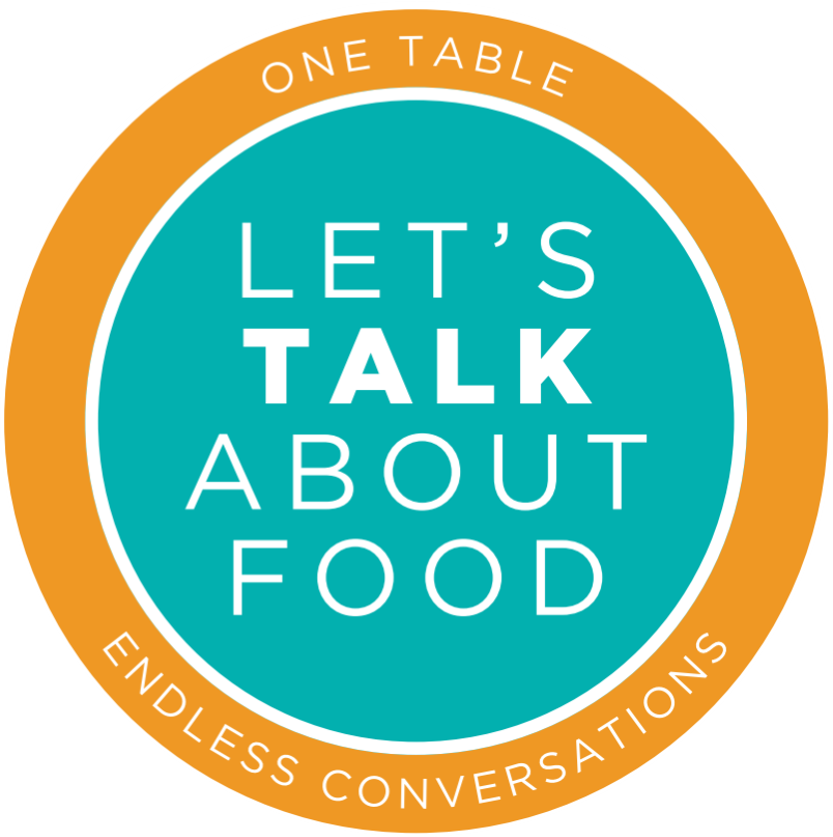Re-Defining what it means to be a Foodie in 2020
Once upon a time, long before I started Let’s Talk About Food, I was the co-owner of three restaurants. The work was so hard it made me cry. The work was so wonderful it made me cry. There is nothing more gratifying and exhausting, or more important, than feeding your community and yourself. But I admit that until I was in the actual gritty business of food I had not grasped the simple fact that food is the core that ties us together as humans. Our social rituals. Our physical need. The energizer of migrations and human ingenuity. The simple act of breaking bread together.
We all eat. Three times a day if we can. With joy and hunger. And hopefully with the understanding that good clean food is the essential fuel for human health and community. If we are average American lucky we can choose what we eat and when and where we eat it. If we are even luckier, we can search out the best ingredients, the most righteous sources, the rarest of the rare and enjoy it all with joy and ceremony. And perhaps a bottle of wine. But many of our neighbors, in the wider world and even in our close community, are not so lucky.
To be a Foodie in 2020 requires us to go much deeper than we did before. In addition to delighting ourselves, the key challenge for a 2020 Foodie is to figure how to feed the planet and the next billion members of our species. We all still love food. We obsess about food, reveling in new recipes and flavors. We root for the chefs! Nothing wrong with food as a source of pleasure and joy! But we 2020 Foodies are required to think about food more broadly, more systemically. We start at the beginning of where and who grows our food, who brings it from the oceans, coaxes it from the soil, who works with our food in industrial kitchens and labs, in large greenhouses and in small craft cellars, or even in the vast commissaries of the U.S. Army. We care about the supply chain of how food gets from here to there, and how much of it gets left behind. We care about food waste, we care about food insecurity and justice. We care about how many miles food travels to get to us, and we happily hyperventilate about whether GMO’s are good, or bad, or simply irrelevant. We want our kids to know where food comes from (hint: spaghetti does not grow in plastic bags!), how to cook a meal or six, and we want our food dollars to stretch like Bazooka bubblegum. We 2020 Foodies are Citizen Eaters. Mindful of food, proud of our appetites, soldiers for food justice. Food isn’t just what we eat for dinner. It’s the whole circus of life.
Back in 2010 when I first started Let’s Talk About with the Museum of Science in Boston, I used to tell people that I was agnostic about why people came to food as long as they were engaged. They could be hungry gourmands, or fit people concerned about wellness, or moms crazed by the manipulations of the big food companies. They could care about school food, or composting, or be fascinated by the science how bread rises, eggs scramble and salad dressings emulsify. I really didn’t care as long as they were engaged. My mantra was that I wanted everyone to come away with a nugget of food information that they didn’t possess before. Because you never unlearn food. That’s still the hope of Let’s Talk About Food. It’s an event where we come together to have fun, get turned on and think about the collective impact we can have with every bite we take.
On September 28th, the 10th annual Let’s Talk About Food Festival is presented by the Food Voice, Harvard University Dining Services, and Whole Foods Markets.





